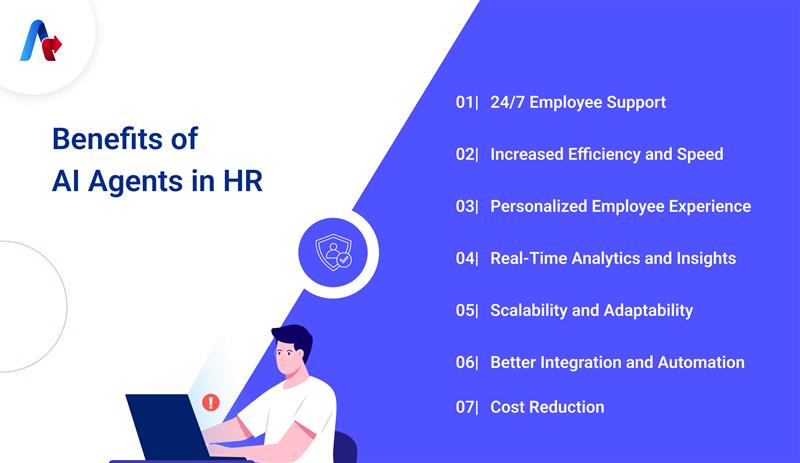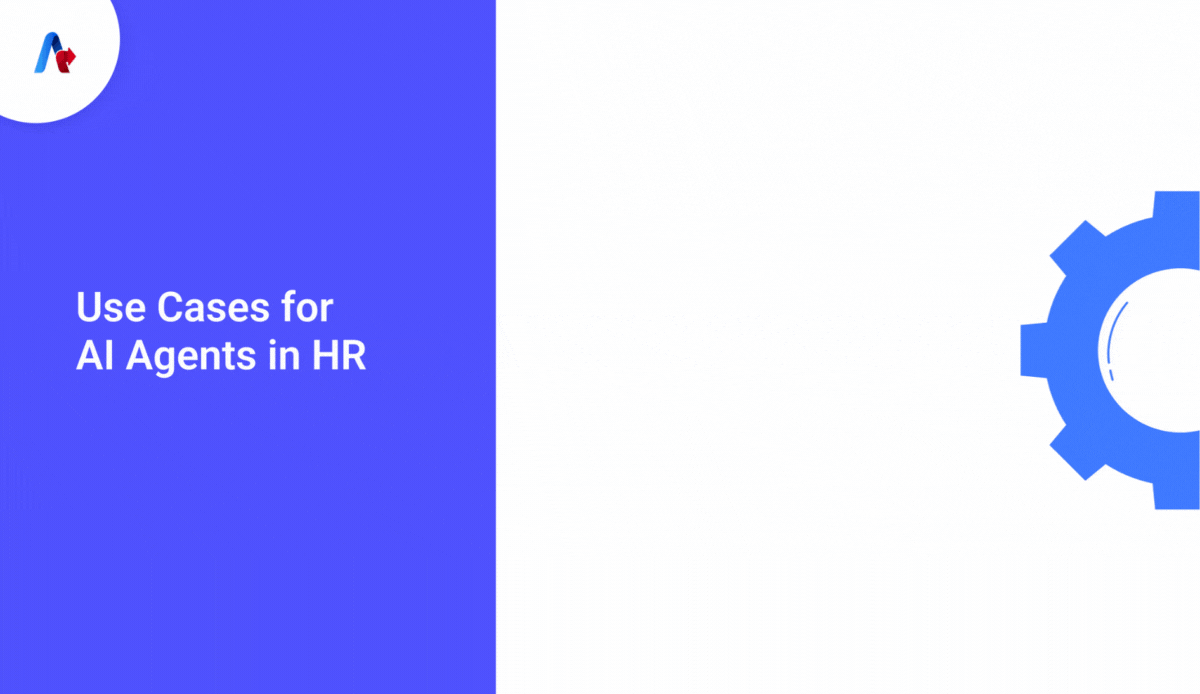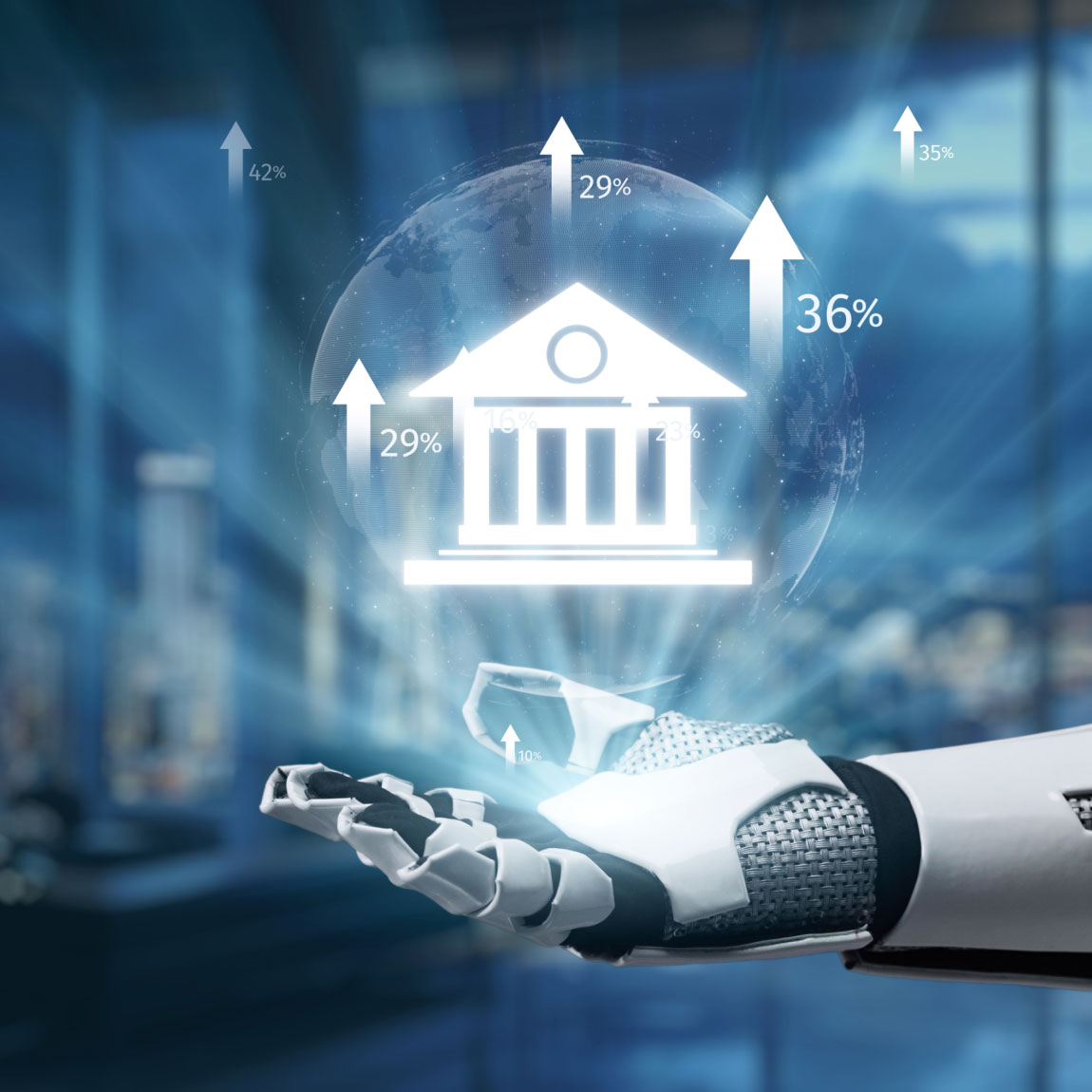AI Agents in HR
BLOG
11 min read
How AI Agents Are Transforming HR Operations and Employee Experience
Quick Summary
AI Agents in HR are transforming human resources by automating repetitive tasks, improving employee interactions, and enabling real-time, data-driven decisions. From recruitment and onboarding to performance management and compliance, these intelligent agents streamline the entire HR lifecycle, integrate seamlessly with existing systems, and deliver a more personalized, efficient, and scalable HR experience.
The human resources (HR) field is changing rapidly. As businesses grow and employee expectations increase, legacy HR systems are struggling to keep up. AI agents in HR are smart, self-sufficient software programs that do tasks, make decisions, and learn from data to make things run more smoothly.
This change marks a turning point, where intelligent automation and a strategy that puts people first come together.
AI agents for human resources are becoming essential tools because they automate routine tasks and give each employee a unique experience. These agents are changing how HR works, from hiring new employees to managing their performance. This is making both the work and the people happier.
The result is an HR function that is more flexible and responsive and really puts people first.
A Deloitte survey reveal that 67% of Australian millennials and almost 50% of Gen Zs already use generative AI at work, noting benefits to their work quality.
Understanding AI Agents in HR and its Components
An AI agent in HR is an intelligent software system that uses machine learning, natural language processing (NLP), and automation to do HR tasks, talk to employees, and make choices.
These AI agents are not just chatbots; they can handle whole processes, learn from conversations, and change over time.
Core components include:
- NLP engines: Natural Language Processing (NLP) engines help AI agents understand employee questions in plain language and give answers that are relevant and conversational.
- Machine learning models: These models analyze both historical and real-time HR data to find patterns and make predictions, like finding employees who are likely to leave.
- Integration layers: Integration layers let AI agents work with current HR systems like Workday, SAP, or BambooHR. This makes sure that data can be shared easily and that the systems work with each other.
- Workflow automation engines: These engines automate HR tasks that need to be done over and over again, like approvals, reminders, and data entry. This makes them faster and error-free, without the need for human help.
These things work together to give AI agents the power to work across the HR lifecycle with little help from humans.
Explore More Ways to Upgrade Your HR Systems
Book a Strategy SessionWhat Are the Benefits of AI Agents in HR Operations Compared to Legacy Systems?

AI agents for human resources provide faster, smarter, and more scalable solutions than older systems, which helps HR teams work more efficiently, improve the experience of employees, and make decisions based on data.
AI agents are more flexible, smart, and automated than old HR systems, which are often rigid, separated, and based on manual processes. The key benefits are:
1. 24/7 Employee Support
AI agents are always available to help, unlike legacy systems that need human help or only work during business hours. They answer questions about policies, frequently asked questions, and even tough problems, making sure that employees always have help when they need it.
2. Increased Efficiency and Speed
AI agents make repetitive tasks like onboarding, asking for time off, and payroll questions easier. This lets HR staff focus on more important tasks and speeds up the time it takes to solve problems for employees.
3. Personalized Employee Experience
AI agents can change their responses and actions based on each employee's profile, history, and preferences, which older systems can't do. This level of customization makes people more interested and happier.
4. Real-Time Analytics and Insights
AI agents analyze data in real time to give information about things like how employees feel, how likely they are to leave, and what training they need. Legacy systems usually need people to pull data by hand and report it later.
5. Scalability and Adaptability
AI agents can easily grow with your business to support thousands of employees without needing more infrastructure or staff. They also learn new policies, tools, and ways of doing things quickly.
6. Better Integration and Automation
Modern AI agents work perfectly with other business systems and HR software that is already in use. This makes it possible to automate the whole process. Legacy platforms often have trouble working with other systems or need expensive custom development.
7. Cost Reduction
AI agents help to reduce costs related to mistakes, delays, and errors that are common in traditional HR operations by making processes more accurate and less reliant on manual labor.
Organizations implementing AI in HR have reported up to 30% cost savings in operational expenses.
AI agents for HR make HR processes more flexible, smart, and automated. They are a better option for the future than old legacy systems that can't keep up with the needs of today's employees or operations.
Real-World Use Cases for AI Agents in HR

AI agents, which are based on intelligent automation, are changing every important HR task by making workflows easier, improving communication between employees, and letting decisions be made based on data. These agents help HR teams work more efficiently and make work experience better for employees, from hiring to managing performance.
Recruitment & Onboarding
AI agents make the hiring process easier by automating things like screening resumes, talking to candidates, and setting up interviews. They also make onboarding more personal by helping new employees with policies, training, and paperwork.
Use cases:
- Sorting and analyzing resumes based on how well they fit the job
- Scheduling interviews automatically and sending reminders
- Answering candidate queries 24/7 via chat
- Helping new employees with onboarding steps and documentation
Case Study: How Agentic Process Automation Optimizes Resume Screening Efficiency by 80% for Internal HR
Performance Management
AI agents enhance performance tracking by automating review cycles, looking at feedback, and finding skill gaps. They help managers and employees by giving them timely insights and reminders, which leads to ongoing improvement.
Use cases:
- Sending reminders and prompts for automated performance reviews
- Analyzing feedback and performance data to identify trends
- Suggesting training based on areas where performance is lacking
- Helping people set and keep track of their own KPIs
Employee Engagement & Support
AI agents make employees happier by giving them instant help, collecting feedback, and keeping an eye on how they feel. They act as virtual HR assistants that are always available and improve communication within the company.
Use cases:
- Answering questions about policy, leave, and benefits right away
- Running pulse surveys to find out how employees feel
- Using NLP analyze feedback to find problems with engagement
- Sending personalized updates and reminders
Learning & Development (L&D)
AI agents make learning more personal by suggesting relevant courses, keeping track of progress, and finding skill gaps. They help HR teams provide targeted development on a large scale.
Use cases:
- Suggesting ways to learn based on goals and role
- Monitoring course completion and engagement
- Suggesting that people learn new skills based on how well they do their jobs
- Making reminders and nudges to help you learn
Compliance & Policy Management
AI agents make sure that policies are followed by automatically updating them, keeping track of who has read them, and pointing out possible problems. They help businesses stay ready for audits with little work on their part.
Use cases:
- Sending out new or updated policies and getting e-signatures
- Setting up reminders for compliance training automatically
- Marking incomplete acknowledgments or training that is past due
- Making reports for compliance audits
Payroll & Benefits Administration
AI agents make payroll and benefit easier by answering questions, helping employees sign up, and making sure that information flows between systems on time.
Use cases:
- Answering questions about payroll benefits-related FAQs 24/7
- Helping employees through open enrollment
- Sending alerts about important dates or policy changes
- Updating payroll information by connecting to internal systems
Attrition & Workforce Analytics
AI agents analyze how people act, guess when they will leave, and find gaps in diversity to give you information about your workforce. They help HR leaders make decisions based on data and in advance.
Use cases:
- Predicting flight risks based on engagement and performance data
- Monitoring diversity and inclusion metrics
- Generating real-time workforce dashboards
- Suggesting ways to keep employees based on trends
How Do AI Agents Improve Employee Experience?
AI agents for human resources enhance the employee experience by providing prompt, individualized, 24/7 assistance, reducing conflict in HR communications, and building a more adaptable, people-focused work environment.
Reduced Frustration with HR Processes
With numerous logins and forms, traditional HR systems can be cumbersome. AI agents make employees' lives easier by streamlining processes like updating contact information, accessing paystubs, and submitting time off.
Example:
Instead of filling out a form, an employee can just say, "I need to update my phone number," and the agent handles it through integrated HR systems.
Better Feedback Loops
AI agents can do quick surveys, or sentiment checks to find out how happy employees are. They can identify negative emotions and help HR teams take steps to support well-being before it gets worse.
Example:
A short weekly check-in can help managers track engagement and mental health trends (“How are you feeling about work this week?”).
Smarter Learning and Growth Paths
Identifying useful training or career advice can be hard for employees. AI agents look at people's skills, roles, and goals to suggest the best ways for them to learn new things and improve their skills.
Example:
An AI agent might recommend a leadership course to an employee who is regularly achieving or exceeding their KPIs and is on track for a promotion.
Faster Issue Resolution
AI agents can either fix problems directly or send them to the right department, which reduces delays and frustration. They can help with anything from IT problems to payroll problems.
AI agents are like digital HR assistants they're always there and always learning.
Transform Your HR Operations with AI Agents Powered by Accelirate
At Accelirate, we’re at the forefront of this HR transformation, designing AI agents that go beyond basic automation to deliver personalized, enterprise-ready solutions. These intelligent agents seamlessly integrate with existing systems to automate the entire HR lifecycle—boosting efficiency, reducing costs, and improving the employee experience at every step. From recruitment and onboarding to performance management and employee engagement, our AI-powered agentic automation solutions make HR more adaptive, data-driven, and people-focused. If you're ready to move beyond legacy systems and create a smarter, more responsive HR ecosystem, connect with our experts today.
Why wait to transform your HR ecosystem with AI Agents?
Connect with our experts today!FAQs
Accelirate builds custom AI agents that work with your current HR system, automate complicated tasks, and give you real time information. This makes your employees more engaged and also your work more efficient.
Challenges like AI are used ethically, managing change, and making sure that data is safe. Working with experienced companies like Accelirate can help you overcome these problems.
Yes, if implemented correctly. AI agents can be made to meet strict security and compliance standards. Top providers keep sensitive HR data safe by using end-to-end encryption, role-based access, and audit trails.
AI agents are not designed to take the place of HR teams; they are designed to help them. They take care of boring tasks, make processes more efficient, and give real-time information, which lets HR professionals focus on strategic, people-first projects.
Not always. AI agents give many businesses a high return on investment because they speed up processes, reduce mistakes, and cut down on manual work. You can scale and customize solutions like those from Accelirate to fit your budget and needs.


